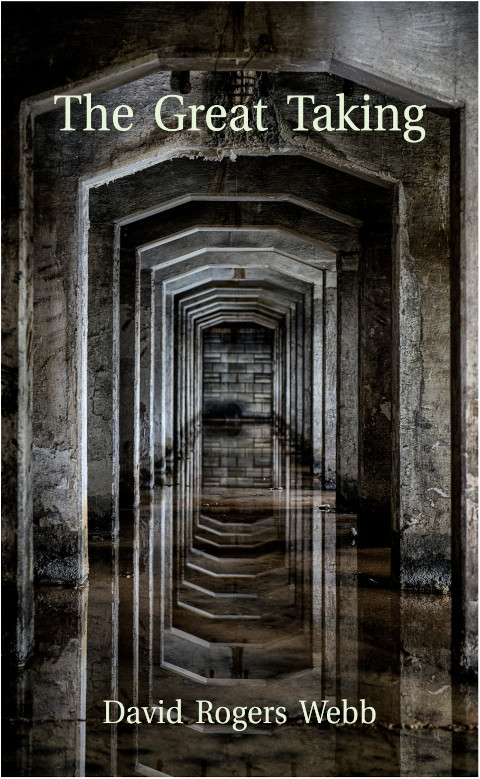
A Short Preview:
“You’ll own nothing.”
~ World Economic Forum prediction
By Catherine Austin Fitts
Upon surviving a mass atrocity, you come to understand the criminal nature of the financial syndicates roaming the planet. Human rights are everywhere threatened. So are property rights.
Private property is important. It is family wealth that creates community wealth and stands between us and the abyss in emergencies or challenging times. Remove our assets and our access to wealth-building, and we lose our independence and the reserves that make the difference. We lose the entrepreneurial seed corn that creates an enlightened and productive society. If we own nothing in a world with central transaction control, we are no more than slaves.
For several decades, we have watched growing bubbles in the fixed-income markets. It became more than clear during the financial crisis of 2008–2012 that our collateral system was marked by high levels of fraud. Ultimately, the bailouts—supposedly necessitated by a collapse in the mortgage and housing markets—were more than 300% of the amount needed to retire all the single-family mortgages in the United States. In the process, we have experienced events that create serious questions about the ability of banking creditors and investors to compromise investor and depositor assets and the willingness of regulators and courts to allow them to do so. Such events include:
- The collapse of the Madoff fraud controlled by JPMorgan Chase
- The resolutions of Lehman, Bear Stearns, and MF Global
- The HSBC settlement with the U.S. Department of Justice
- The U.S. Treasury and New York Fed role in the collapse of Silicon Valley Bank
- The acquisition of Credit Suisse by UBS
The result has been increased concerns about the dangers of bail-ins of our bank deposits in an engineered consolidation of the banking system. This is compounded by increased concerns regarding the potential destruction or confiscation of our real estate through regulation and taxation inspired by “climate change.” It also includes questions regarding the ownership and custody of securities described in a new book titled The Great Taking by retired hedge fund manager David Webb.
Originally from Cleveland, Ohio, David has studied the financial and human harm caused to several generations of his family by engineered pumps and dumps of the U.S. economy. Committed to protecting himself and his family, David had a successful career in the hedge fund business. Concerned by the corruption in the U.S. financial system (made clear during the financial crisis), David moved to Sweden, convinced that his assets would be safer in the Swedish securities, banking, and custodian systems. Then, as the Swedish and European systems aligned with U.S. practices, he continued to research the byzantine developments taking place in the legal and financial nuts and bolts being engineered in the backrooms of the global financial systems.
Persuaded that Mr. Global has now created a global mechanism to assert creditor rights over all securities, David lays out his case in The Great Taking. David bases his analysis on statements made by regulators as to what they can do. Carolyn and I still cannot document the legal pathway behind these statements. I believe that much of what David describes were mechanisms created to keep the collateral bubble going. David points to changes in the Uniform Commercial Code that we do not understand—more research here would be invaluable.
We do not agree with David’s analysis of money velocity. Centralization and criminality remove trust from the system, bringing on a drop in money velocity. Growth without inflation is more than possible, but it will require a change in the governance and central banking systems. Where we do agree is that the central bankers intend to strip us of our assets and property rights. If the central bankers achieve financial transaction control, they will indeed be able to engineer a “great taking.” The pandemic destruction of small businesses and family income was simply a small taste of what will then be possible.
This coming week, David joins Carolyn Betts and me to describe his journey from money manager to author, help us understand the documents and evidence supporting his conclusions (yes, this gets into lots of technical issues regarding securities) and the general assault on our property rights, and share his thoughts on what we do about it all. We are deeply grateful for David’s research and his willingness to share it broadly. His work proves once again that the deterioration in the integrity of our legal and financial systems creates unacceptable risks – including for the very wealthy.
I will review a list of “takings” covering all asset classes with Dr. Farrell in the Annual Wrap Up – News, Trends & Stories Part I in January, so stay tuned for that as well.
Related Solari Reports and Videos:
Stopping the Steal with John Titus
Book Review: Bailout by Neil Barofsky




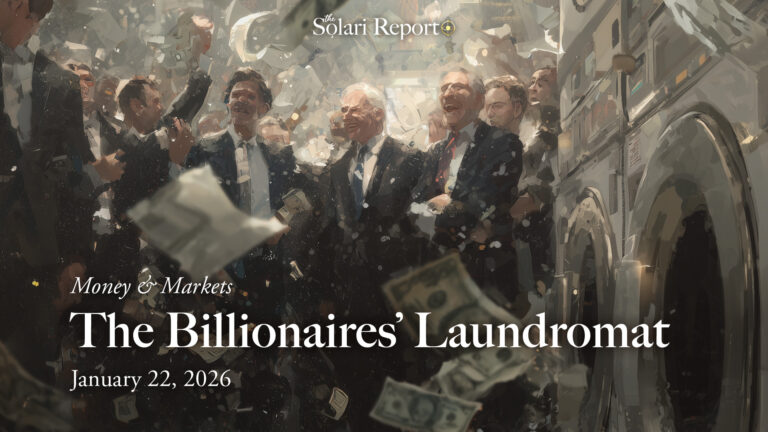


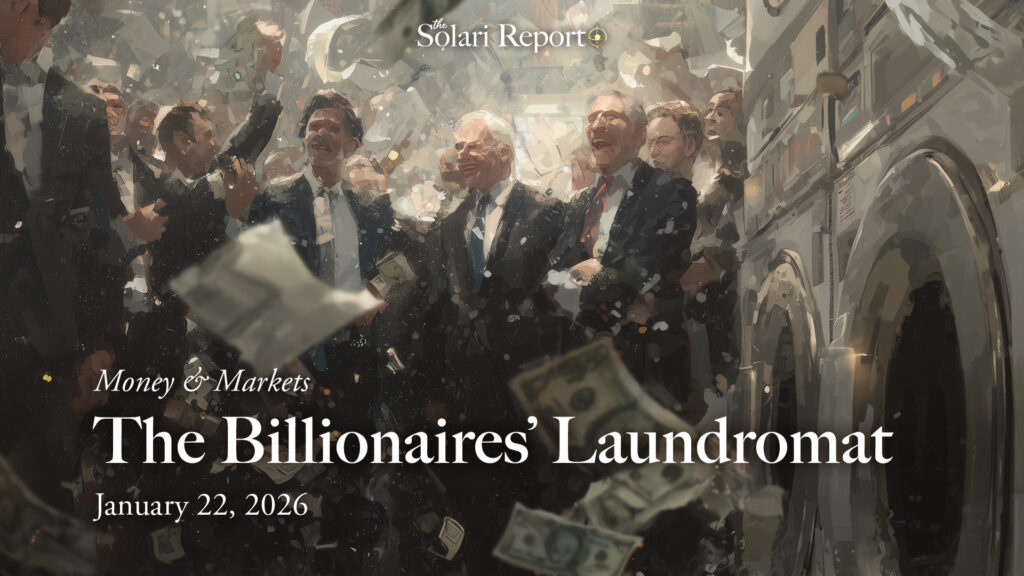
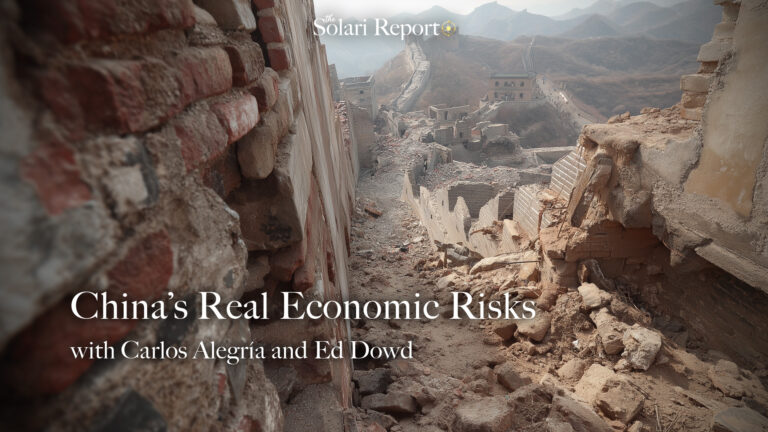
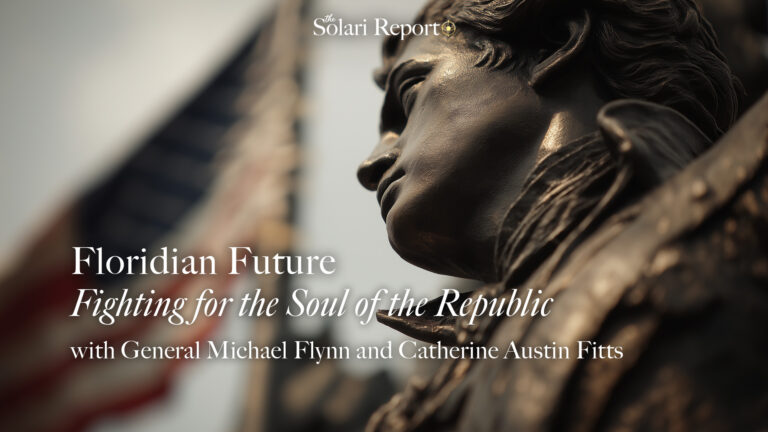
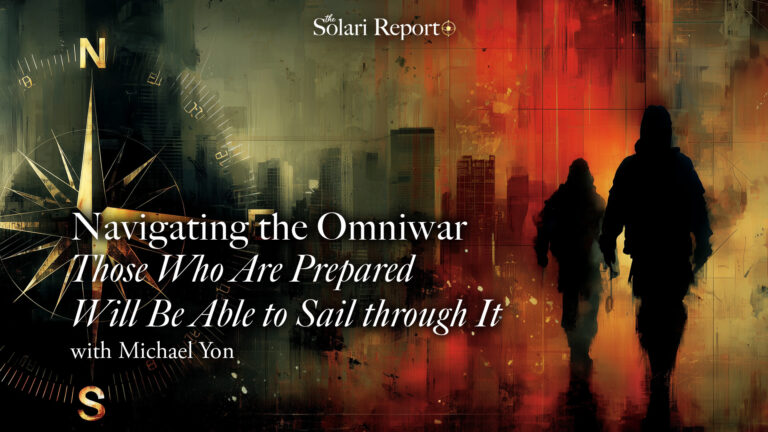
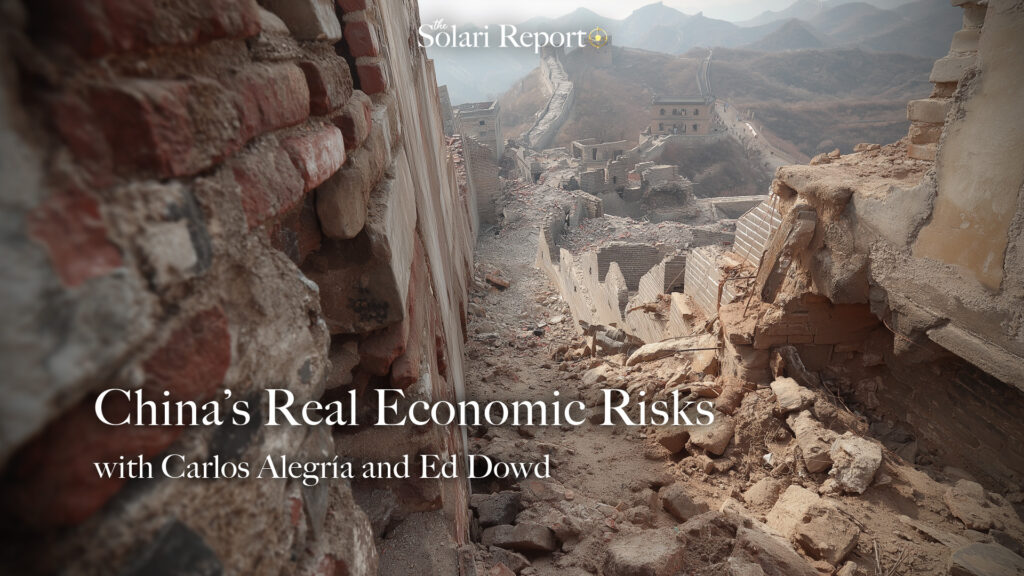
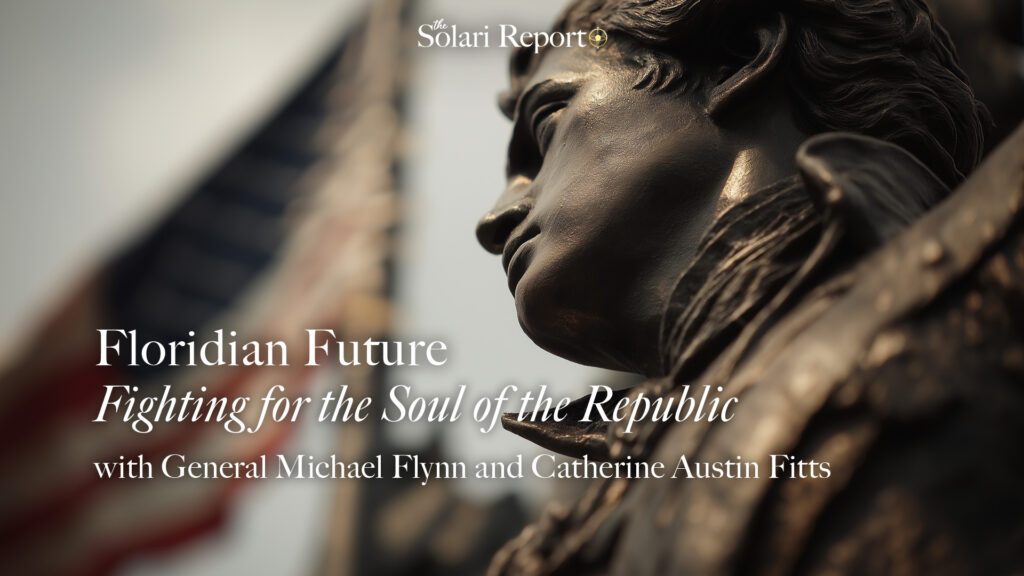
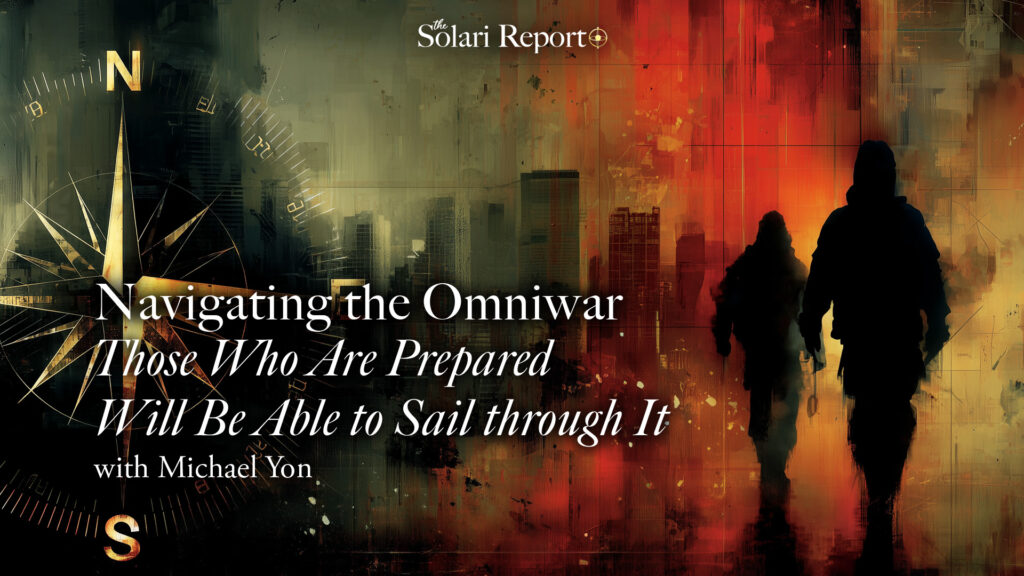














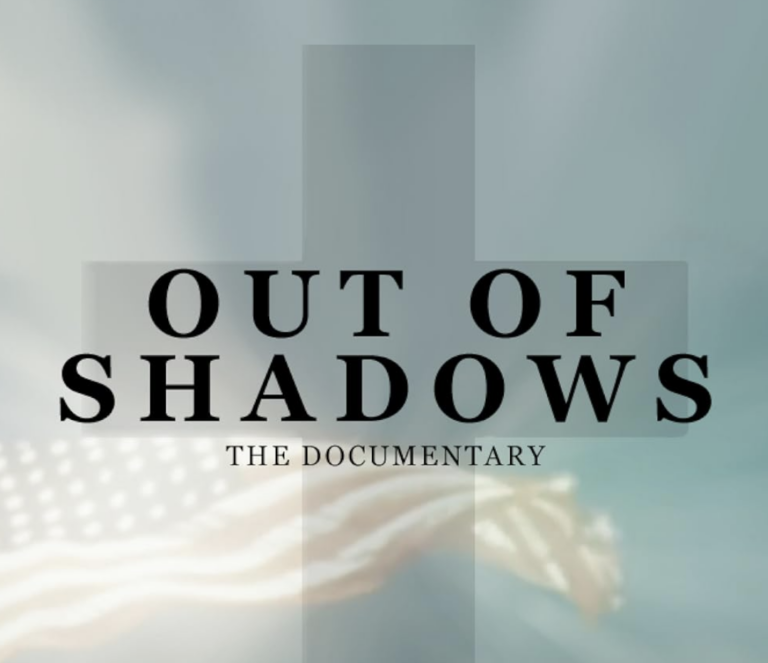












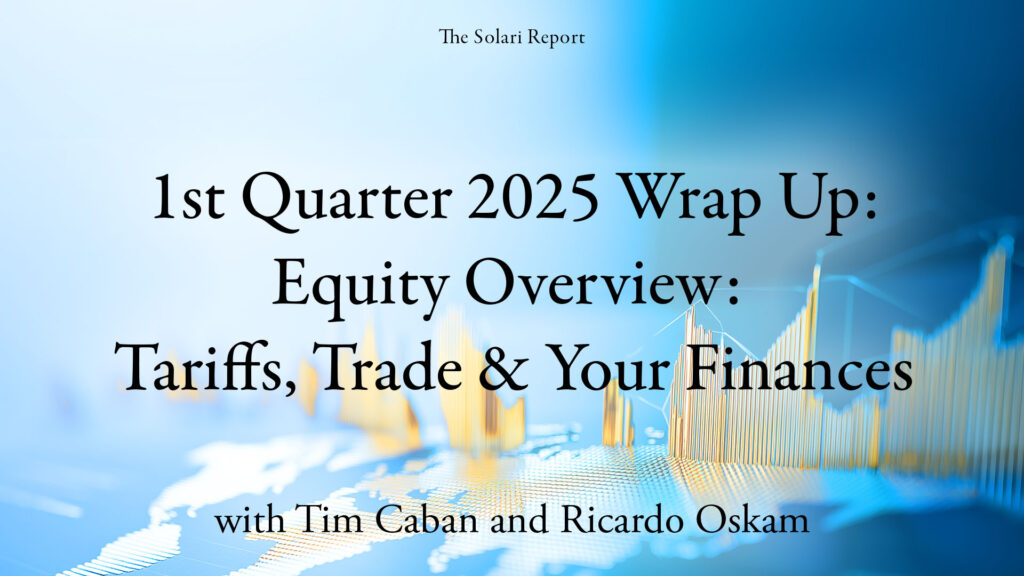











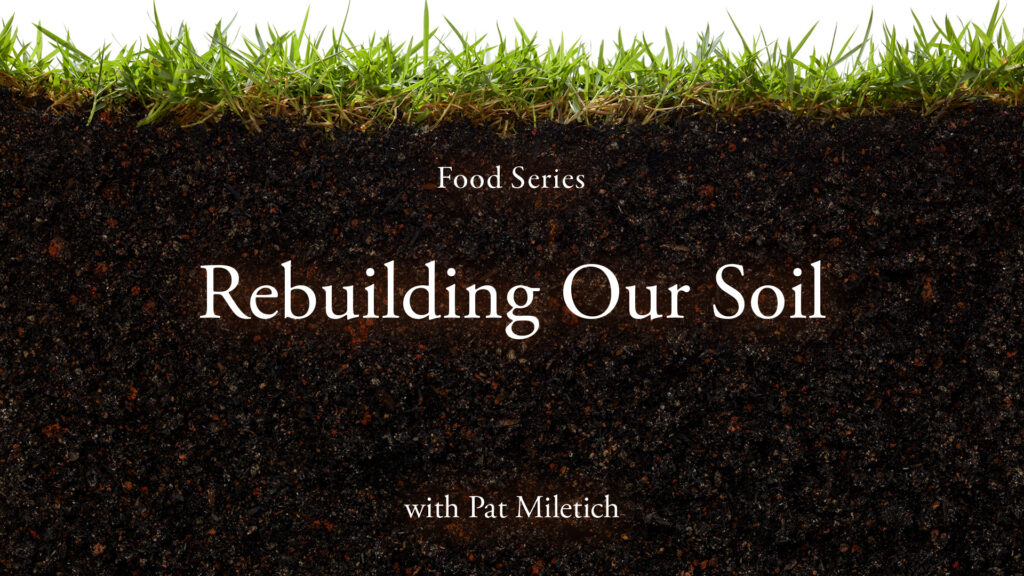

































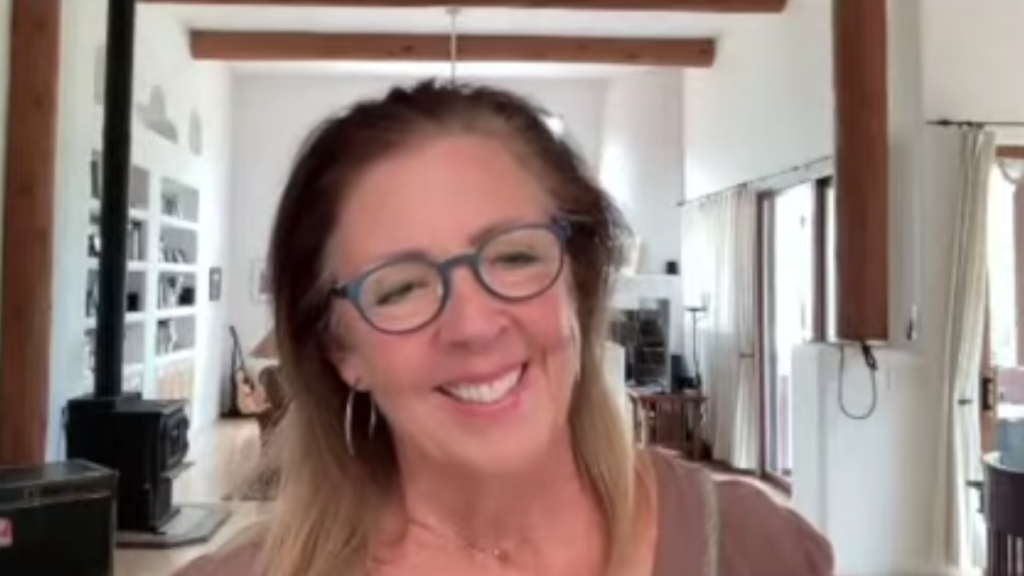

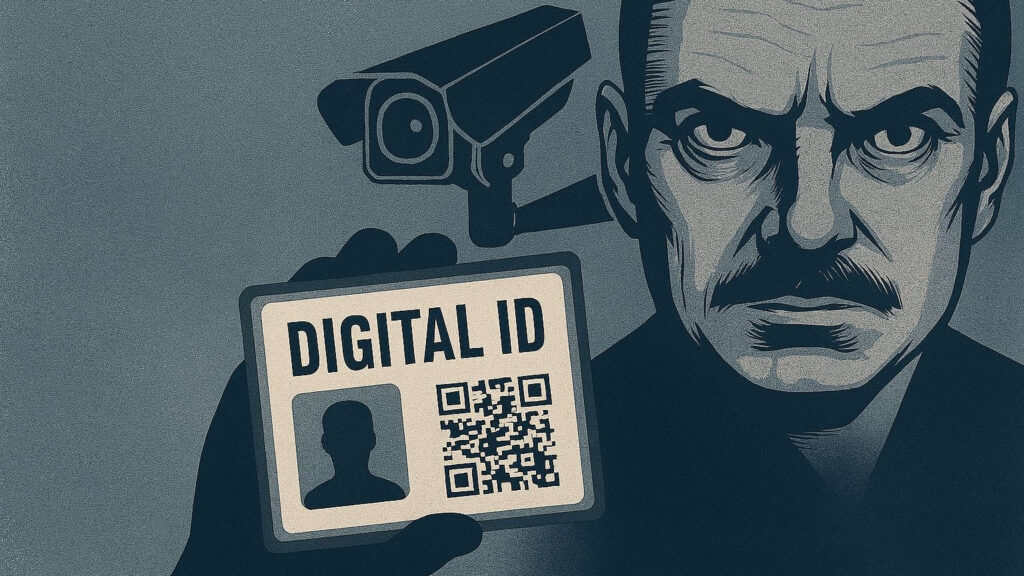
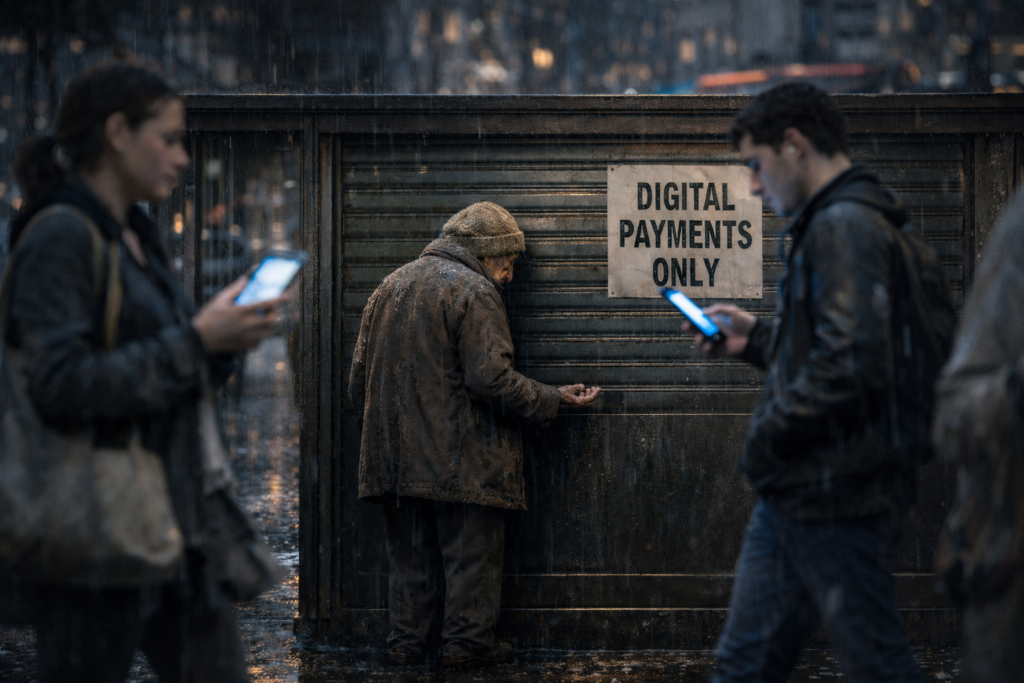
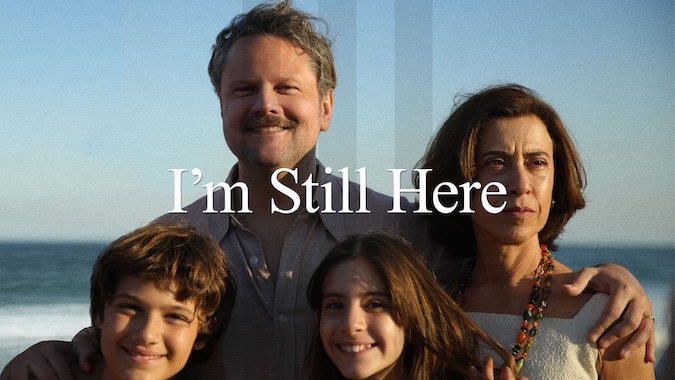





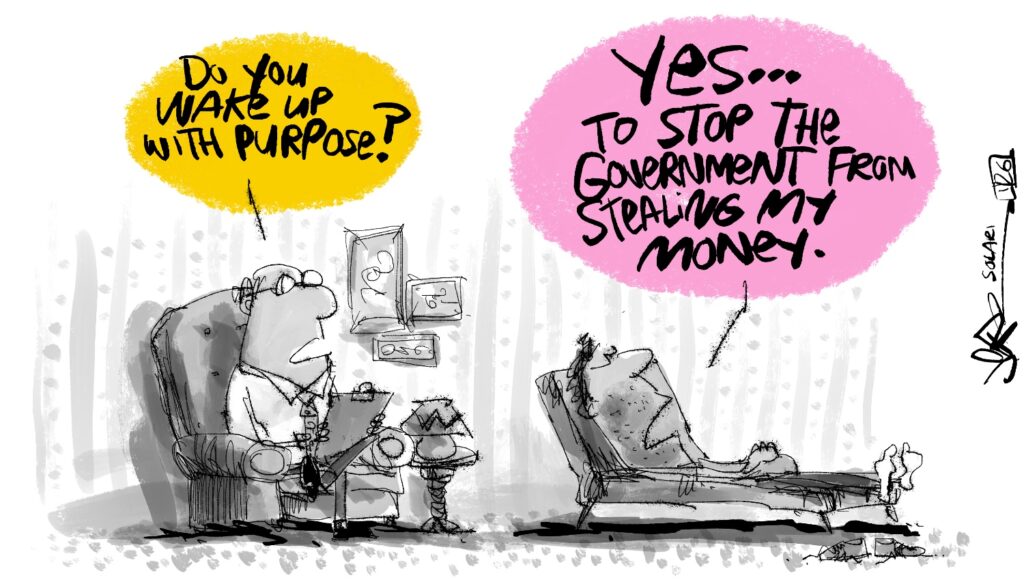





















A couple weeks ago, I tried to search Solari, to see if you had seen Mr. Webb’s 70 minute video narrative about The Great Taking… so glad to see you will be having this discussion.
Excellent!!! I watched his documentary and was hopeful that Catherine would interview him. We have GOT to find a way to stop this grift.
Bitcoin ETF
The Trust is an “emerging growth company,” as defined in the JOBS Act. For as long as the Trust is an emerging growth company, the Trust may take advantage of certain exemptions from various reporting requirements that are applicable to other public companies that are not “emerging growth companies,” including, but not limited to, not being required to comply with the auditor attestation requirements of Section 404(b) of the Sarbanes–Oxley Act of 2002 (the “Sarbanes-Oxley Act”), reduced disclosure obligations regarding executive compensation in the Trust’s periodic reports and audited financial statements in this prospectus, exemptions from the requirements of holding advisory “say-on-pay” votes on executive compensation and shareholder advisory votes on “golden parachute” compensation and exemption from any rules requiring mandatory audit firm rotation and auditor discussion and analysis and, unless otherwise determined by the SEC, any new audit rules adopted by the Public Company Accounting Oversight Board.
From Blackrock ETF filing:
https://www.sec.gov/Archives/edgar/data/1980994/000143774923017574/bit20230608_s1.htm
Credit anon poster ZH
Well that is an interesting tidbit. Nick Brady tried to call me when the JOBS Act was being debated. I never spoke to him as I was on another call and then he never called back. Suspect there is a lot buried away in that one.
Incredible interview. Thank you!
Started on a list of the many TAKINGS underway for my discussion with Joseph – we record this Sunday. Please add any you recommend for the list
The Many Great Takings
Taking: $33 Trillion on Issuance of Debt Based Currency vs Greenbacks
Taking $: US Black Budgets, 1947 on
Taking $: Naked Short Selling and Pump and Dumps n Stock Markets
Taking: $500 Billion – $1 Trillion S&L Crisis Clean Up; related mortgage, mortgage servicing and foreclosure fraud
Taking: $21 Trillion Missing from US Federal Government, Fiscal 1998-2015
Taking: $ Trillions in US Treasuries, Bills, Guarantees and Related Collateral Fraud
Taking: $ Predatory Lending and Fraudulent Inducement: Student Loans, Consumer Debt and Mortgage Bubbles
Taking: $ Trillions on Legalization of Usury
Taking: $ Trillions Missing from US Federal Government Since 2015 and FASAB 56 in 2018
Taking: $ Trillions on Federal Credit Interest Rate Arbitrage (Banks and GSEs borrow for 0% while Credit Card holders pay 17%)
Taking: $27 Trillion From Taxpayers in Financial Crisis Bailouts, 2008-2012
Taking: $ Trillions on Quantitative Easing and Currency Debasement/Inflation
QE1 2008
QE2 2010
QE3.2012
QE4 2020
Taking $: Trillions in Stock Buybacks financed
Taking $: Leveraging of Sovereign Governments Globally
Taking $: Crypto Pump and Dump, 2017-2018, 2020-2022
Taking $ Going Direct Reset, August 22, 2018 to Date
Taking $ Pandemic Disaster Capitalism
Taking $: Post Financial Crisis Mortgage Servicing Fraud
Taking: $ Manipulation of Property, Health and Life Insurance Prices, Credit and Terms and Conditions
Taking: $ Double Standards in Taxation and Regulatory Fees and Enforcement
Taking $: Banking Consolidation, including 2023 US Banking Consolidations
Taking: $ Trillions – PIratizations and Insider Tech Transfers
Silicon Valley/Black Budget Laundry.
G-7
Rape of Russia – 1990-1998
Eastern Europe – 1990 to date
Taking: $Trillions on War and Coup d’ Etat
https://en.wikipedia.org/wiki/List_of_wars_involving_the_United_States
Latest Taking: Ukraine Land and Resources
Non-Monetary/ Monetary
Taking: Surveillance Extraction of Data and Intelligence; Compromise of Privacy
Taking: Weaponization of Migration, Failure to Enforce Borders, Selected compromise of freedom of Movement
Taking: Harm to the Atmosphere: Nuclear Testing, EMF Radiation, and Geoengineering
Taking: The Great Poisoning – reducing and poisoning citizens and the next generation making it easier to defraud
Taking: $ Destruction of Top Soil: (GMO and terminator seeds, glyposate, commercial agribusiness, introduction of invisible nanoparticles and engineered materials, geoengineering)
Taking $: Weather Warfare (Paradise, Lahina, +)
Taking: Failure to Enforce, including Anti-Trust and Extraction Taxes, Use of Enforcement to Stop Innovation, New Technology and Decentralized Economic Activity
Anticipated
Taking: BIS and G-20 Central Banks: End Financial Transaction Freedom
Taking: The Great Taking by David Webb (Securities)
Taking: The WHO Business, Land and Real Estate Confiscation Machine
TAKING $, young brainpower, environmental resources: Academic Science – specifically CERN. I was a physics major in college and was totally repulsed by this multi-national boondoggle. A great book on this topic is: The Higgs Fake by Alexander Unzicker.
Obviously this is not a mainstream direct attack but one of probably countless side-hustles of distracting valuable minds and money and diverting it towards…what possible end?!
Add in the taking of our precious time as you so aptly call the “clock eatery”! I have spent hours attempting to get back a duplicate payment from the Calif DMV who insists I never paid a vehicle registration on time this year and then proceeded to demand I repay it with a late fee only to cash both checks one of which is dated 25 days prior to the expiration date as is its postmarked envelope. The hours it takes to reverse engineer the snarled wheels of any government bureaucracy is exhausting and nearly impossible. Part of the “beat down”.
There was the check ‘washing’ scheme, most likely orchestrated by BoA, last year. I guess BoA needed to test their digital banking and digital signature verification systems..
Clearly organized to make it more expensive to get the refund than to pay double.
Taking: Outsourcing/offshoring (this takes from the people as well as the local, State, and Federal tax base, as well as SSI).
Taking: Affordable Care Act
Taking: Utility privatization (VZ use to be a Baby Bell Atlantic, now it’s a WEF Partner)
Taking: FSLIC fiasco / bailout
Excellent additions. Added to the list!
Some more:
Land Trusts – King Charles has these. One in the USA too, in Vermont.
Conservation Easements
===> less private ownership -> less people, less production, less property taxes ==> local deficit
Thanks Catherine. After many years, I’m finally reading Rosa Kiore’s book, Behind the Green Mask. It’s about UN Agenda 21. She was a commercial RE Appraiser in CA so she got wind of the ‘plot’ very early on. She explains how destroying the tax base and ‘taking’ is all part of the plan to lead us into poverty. I’m now understanding why, for 35+ years, National companies became Multi-Nationals and used global labor arbitrage to impoverish not only the USA but all Western 1st World countries. The plan is to make us completely dependent and then pull out the rug by withdrawing assistance. She explains what they mean by ‘social equity’ and other catch phrases. For instance, ‘social equity’ means making us all equally poor.
Now I see the threads in Corporate when they implemented the “preferred vendors list” in Corporations (Aka., Vendor Management Companies). They decimated / bankrupted small businesses by making the requirements to get on the list unattainable for anyone other than a large corporations.
At the same time, they were using buyouts, layoffs, downsizing, M&As, etc. to implement Global Labor Arbitrage to drive out the middle class and install / embed poverty.
All the while, I thought they were just not understanding economic laws of progression and regression at the global level, and how they were destroying their own tax base. But that’s all part of the plan to redistribute wealth into Redevelopment.
Almost 2 decades ago, I remember when I went to PNC for a refi loan and the Banker told me that they no longer do loans for anything but multi-family, mixed-use development. This falls in line with ICLEI (International Council of Local Environmental Issues). ICLEI is there to carry out these plans at the local level on an International scale.
I could go on and on…unfortunately. The damage and destruction they’re doing is just horrendous. UNconscionable.
Rosa was amazing. My interview with her is in the library
Catherine,
The list of all that has been taken –above the anticipated– should be the opening statement of the lawyers for the plaintiffs, the people of the world.
Excellent discussion. I would love to hear what Ed Dowd might be able to put together. Maybe he can spark some consciences out there among the top.
They don’t have the power to kill the host. Just most of the humans.
I have tried to listen to it and had trouble understanding/staying coherent. Maybe should try again. He seemed disassociated from the actual flows of money and resources in a way that kept him from grounding in reality. I kept wondering where his personal money was and thinking it would probably contradict what he was saying. I should also add I have always struggled to understand people. 🙂 It is one of the reasons I turned to mapping the flow of time and money. What people said they did completely contradicted what they were doing – so I needed a tool that mapped what they were actually doing.
It’s so fantastic to listen to an interview between really knowledgeable people. This is a great one. It’s also nice when the interview is not being leveraged to sell precious metals or bitcoin.
Oh, how funny! Yes, hard to imagine Webb, Betts and Fitts selling financial products in the middle of an interview. 🙂
Catherine,
I have seen David Webb‘s documentary. Also, I watched Heiko Schöning‘s interview on Austrian Alternative Media. He mentioned that biological or bacteria warfare will not start before spring 2025. Basically, Mr Global will wait until the next presidential election and inauguration. How feasible do you think this date is? How can I or all of us contribute this from happening? Best, Christian
In my experience low grade bio warfare has been ongoing since at least 1995-96. Not sure why Heiko would be presenting at as the coming Big Bang. There are so many BIG BANGS predicted, I should make a list!